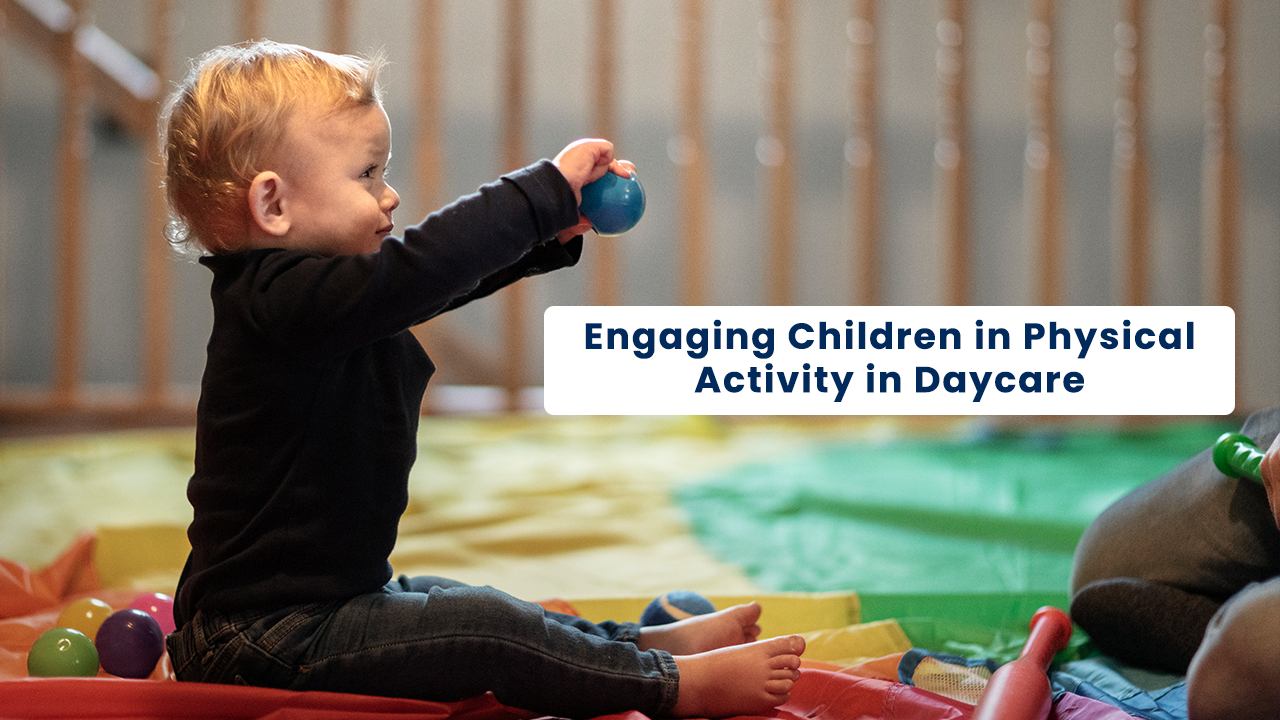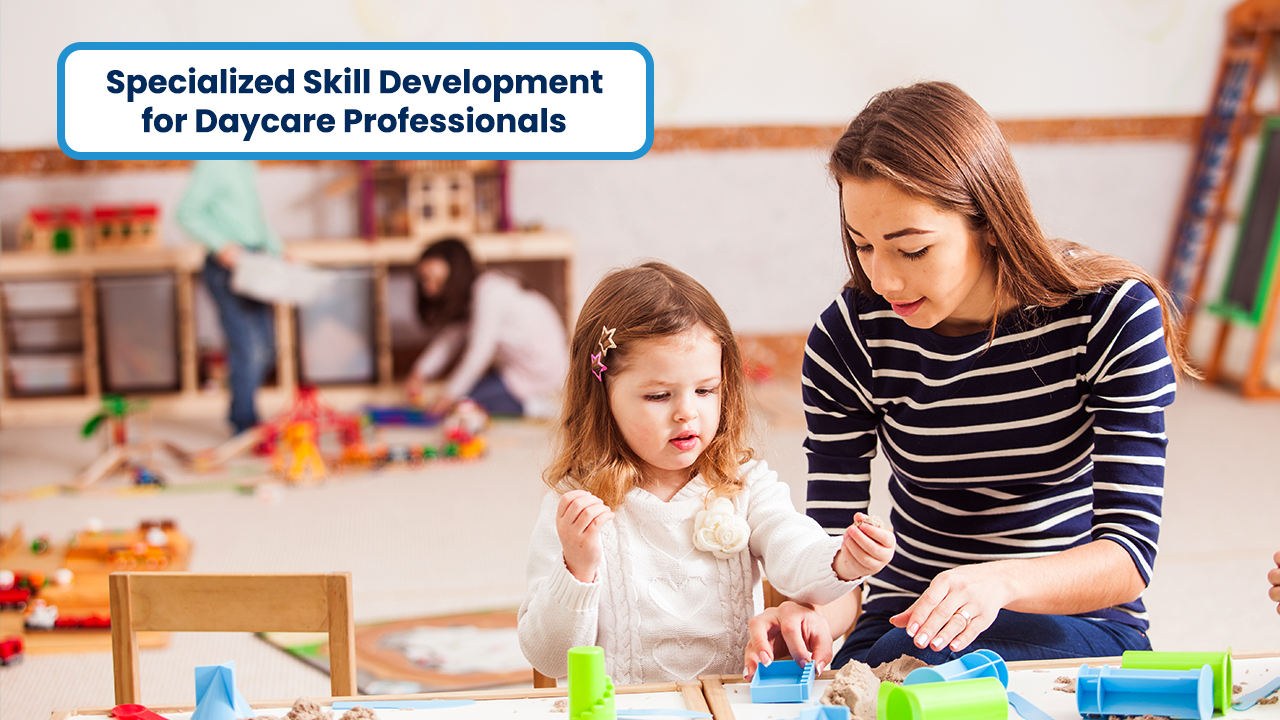
Engaging children in physical activity is essential for the overall development and well-being of our children, and this holds even in a daycare setting. Promoting physical activity among daycare children ensures their physical health and contributes to their cognitive, social, and emotional development. In this blog post, we will dive deep and explore the importance of physical activity for young children in daycare and discuss various strategies to engage children in fun and meaningful physical activities. From incorporating physical play into the daycare curriculum to providing ideas for outdoor play, we will uncover ways to foster an active lifestyle among daycare children.
The Benefits of Physical Activity for Daycare Children
Engaging children in physical activity offers numerous benefits that positively impact their growth and development. Here are some of the key benefits of physical activity for daycare children:
Physical Health
Regular physical activity helps children develop strong bones, muscles, and motor skills. It improves their cardiovascular fitness, enhances flexibility, and builds endurance. Engaging in physical activity from a young age sets the stage for a healthy lifestyle, reducing the risk of obesity, diabetes, and other health issues later in life.
Mental Well-being
Physical activity plays a vital role in enhancing children’s mental well-being. It promotes the release of endorphins, neurotransmitters in the brain that elevate mood and reduce stress. Physical activity can help children manage emotions, improve self-esteem, and develop resilience. It also aids in better sleep patterns, improving overall mental health.
Social Development
Physical activity in daycare settings provides opportunities for children to interact with their peers and engage in cooperative play. It fosters social development by promoting communication, teamwork, and problem-solving skills. Through physical activities, children learn about taking turns, sharing, and resolving conflicts, enhancing their ability to build positive relationships with others.
Cognitive Development
Engaging in physical activity has positive effects on children’s cognitive development. Research has shown that physical activity improves attention span, memory, and academic performance. It enhances brain function by increasing blood flow and oxygen supply to the brain, promoting neuroplasticity and cognitive abilities.
Emotional Regulation
Physical activity helps children develop emotional regulation skills. It provides an outlet for releasing pent-up energy, frustration, and stress. Physical play allows children to express themselves freely and manage their emotions effectively. Through physical activities, children learn self-control, resilience, and emotional self-regulation.
Motor Skills Development
Physical activity in daycare settings promotes the development of gross and fine motor skills. Children engage in various movements like running, jumping, climbing, throwing, and balancing, which contributes to the refinement of their motor skills. These skills are essential for daily tasks, such as writing, dressing, and self-care.
Cognitive Skills Enhancement
Physical activity stimulates cognitive skills, including problem-solving, critical thinking, and creativity. Children use their imagination and creativity to explore different ways of moving their bodies and navigating obstacles. Physical activities that involve rules and strategy, such as organized games, enhance cognitive abilities by requiring planning, decision-making, and adapting to changing situations.
Incorporating Physical Activity into the Daycare Curriculum
To ensure that physical activity is an integral part of the daycare experience, it is crucial to incorporate it into the daycare curriculum. Structured physical activities can be incorporated into daily schedules, allowing children to engage in planned exercises or games. These activities can be tailored to suit different age groups, ensuring that they are developmentally appropriate and safe.
Integrating music and dance into physical activities can make them more enjoyable for children. They can participate in dance routines or follow simple music-based exercise routines. This enhances physical fitness and promotes coordination, rhythm, and self-expression.
Engaging Children in Physical Activity: Ideas for Outdoor Play in Daycare
Outdoor play offers unique opportunities for physical activity and exploration. Engaging children in physical activity in Daycare centers can be done by creating engaging outdoor spaces that encourage children to engage in active play. Here are some ideas for outdoor activities:
Nature walks:
Take children on nature walks around the daycare center’s surroundings, pointing out different plants, animals, and natural elements. This promotes physical activity and fosters an appreciation for the environment.
Scavenger hunts
Organize scavenger hunts where children search for specific items or natural treasures. This activity promotes physical movement, problem-solving, and teamwork.
Sensory play
Set up sandboxes, water play areas, or sensory gardens where children can engage in tactile experiences while enhancing their motor skills.
Bicycle rides
Provide tricycles or small bicycles for children to ride around a designated area. This activity helps improve balance, coordination, and spatial awareness.
Sports activities
Organize simple sports activities such as soccer, basketball, or relay races. These activities encourage teamwork, develop motor skills, and enhance overall fitness.
How 360Daycare Empowers Engaging Children in Physical Activity?
360Daycare is a comprehensive daycare management system for daycares seeking to engage children in physical activity. This software offers a complete solution by streamlining activity management and tracking, maintaining health records, and facilitating effective communication with parents.
One of the key features of the 360Daycare system is its ability to manage and organize various activities for children efficiently. Daycare staff can easily plan and schedule physical activities such as outdoor games, sports, dance classes, and more. The software provides a user-friendly interface that allows staff to allocate resources, assign instructors, and track the progress of each activity.
Moreover, the system allows for seamless tracking of children’s participation in physical activities. With just a few clicks, daycare staff can record attendance, monitor individual progress, and generate reports to assess each child’s level of engagement. This data-driven approach enables caregivers to identify areas where children may require additional support or encouragement to participate actively.
The 360Daycare system also serves as a centralized repository for health records. Staff can securely store and access important health information, including allergies, medical conditions, and emergency contact details. This feature ensures that children’s specific needs and requirements are taken into account during physical activities, promoting their safety and well-being.
Furthermore, the software facilitates effective communication between daycare staff and parents. Through the 360Daycare platform, caregivers can share updates on upcoming physical activities, including details on timings, necessary attire, and any specific instructions. Parents can also access their child’s activity records, view progress reports, and provide feedback, fostering a collaborative environment that enhances the child’s overall engagement.
Summary
In summary, the 360Daycare management system significantly aids daycares in engaging children in physical activity. By streamlining activity management, tracking children’s participation, maintaining health records, and facilitating communication with parents, the software empowers caregivers to create an environment that promotes the physical well-being and development of every child under their care.


